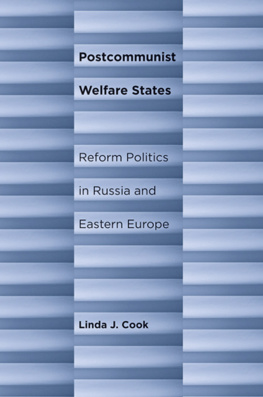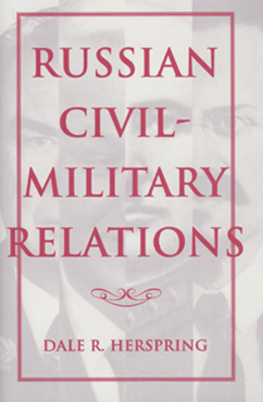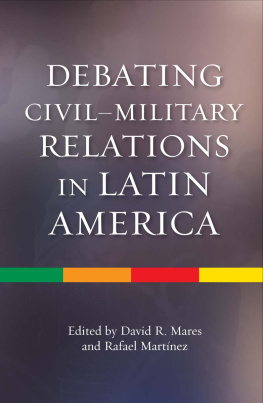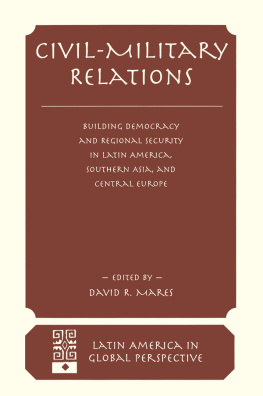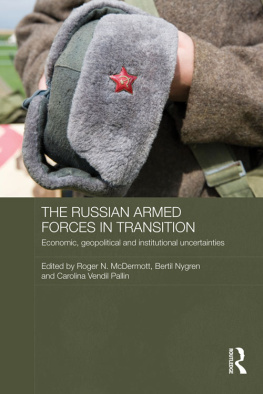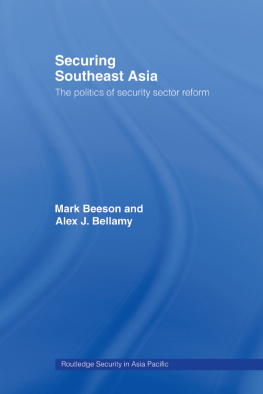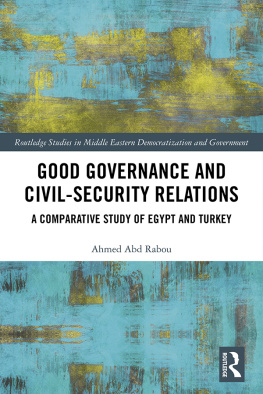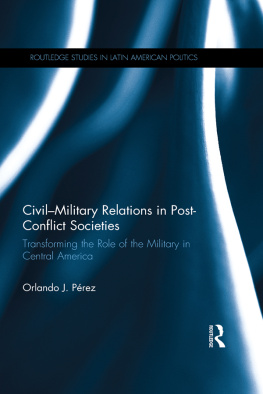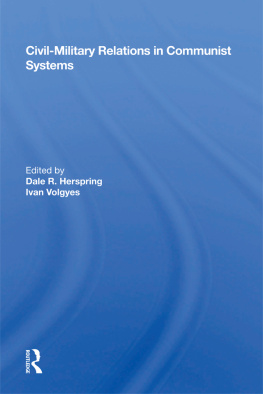Civil-Military Relations in Postcommunist Europe
Fifteen years after the fall of communism, we are able to appraise the results of the multi-faceted postcommunist transition in Central and Eastern Europe with authority. This volume specifically addresses the complexities of Civil-Military relations throughout this period.
The countries of the region inherited an onerous legacy in this area: their armed forces were part of the communist party-state system and most were oriented towards Cold War missions. They were large in size and supported by high levels of defence spending and were based on universal male conscription. Central and eastern European states have thus faced a three fold civil-military reform challenge: establishing democratic and civilian control over their armed forces; implementing organisational reform to meet the security and foreign policy demands of the new era; and redefining military bases for legitimacy in society.
This volume assesses the experiences of Poland, Hungary, Latvia, Romania, Croatia, Serbia-Montenegro, Ukraine and Russia in these areas. Collectively these countries illustrate the way in which the interaction of broadly similar postcommunist challenges and distinct national contexts have combined to produce a wide variety of different patterns of civil-military relations.
This book was previously published as a special issue of European Security.
Timothy Edmunds is a Lecturer in Development and Security at the Department of Politics, University of Bristol
Andrew Cottey is Jean Monnet Chair in European Political Integration and a Lecturer at the Department of Government, University College Cork.
Anthony Forster is Professor of Politics and International Relations and Head of Department at the Department of Politics, University of Bristol.
Civil-Military Relations in Postcommunist Europe
Reviewing the Transition
Edited by
Timothy Edmunds, Andrew Cottey and
Anthony Forster
First published 2006 by Routledge
2 Park Square, Milton Park, Abingdon, Oxon, OX14 4RN
Simultaneously published in the USA and Canada
by Routledge
270 Madison Ave, New York, NY 10016
Routledge is an imprint of the Taylor & Francis Group
2006 Taylor and Francis Group Ltd
Typeset in by Datapage International Ltd., Dublin, Ireland.
Printed and bound in Great Britain by Antony Rowe Ltd, Chippenham, Wiltshire
All rights reserved. No part of this book may be reprinted or reproduced or utilised in any form or by any electronic, mechanical, or other means, now known or hereafter invented, including photocopying and recording, or in any information storage or retrieval system, without permission in writing from the publishers.
British Library Cataloguing in Publication Data
A catalogue record for this book is available from the British Library
Library of Congress Cataloging in Publication Data
A catalog record for this book has been requested
ISBN 0-415-37631-9
Contents
Introduction
CivilMilitary Relations in Postcommunist Europe:
Assessing the Transition
Andrew Cottey, Timothy Edmunds & Anthony Forster
Central Europe
Pl Dunay
Paul Latawski
The Baltic States
Jan Arveds Trapans
South Eastern Europe
Alex J. Bellamy & Timothy Edmunds
The Transformation of Romanian Civilmilitary Relations:
Enabling Force Projection
Larry L. Watts
Timothy Edmunds
The Former Soviet Union
Dale R. Herspring
James Sherr
ANDREW COTTEY,
Department of Politics, University of Bristol, Bristol, UK
Fifteen years after the fall of communism and the end of the Cold War provides sufficient time to make an assessment of the multi-faceted postcommunist transition in Central and Eastern Europe. This special issue of European Security attempts such an assessment in the area of civilmilitary relations. When communism collapsed in 198991 the countries of Central and Eastern Europe inherited a very particular legacy in relation to armed forces, defence policy and civilmilitary relations: the armed forces were part of the communist party-state system; they were oriented, except in the cases of Yugoslavia, Albania and arguably Romania, towards the Cold War mission of conflict with the West; they were large in size and supported by high levels of defence spending; and they were based on universal male conscription, which gave them a broad social presence and perhaps made them a unifying social force. Anyone who travelled in communist Eastern Europe or the Soviet Union from the late 1940s to the late 1980s witnessed highly militarised societies, with uniformed soldiers a universal presence.
The countries of Central and Eastern Europe therefore faced broadly similar challenges: reforming the communist party-state system of civimilitary relations and replacing it with, hopefully, democratic models of civimilitary relations; reducing the size of the armed forces and defence spending and reorienting the military towards new post-Cold War missions; and building new bases of militarysociety relations. Drawing on the broader civimilitary relations literature this special issue assesses the transition in civimilitary relations, focusing on these three areas: democracy and the military; defence reform and professionalisation; and the military and society. The articles in this volume examine the postcommunist civimilitary transition in eight different countries: Poland, Hungary, Latvia, Romania, Croatia, the Federal Republic of Yugoslavia (FRS)/SerbiaMontenegro, Ukraine and Russia. Collectively these countries illustrate the way in which the interaction of broadly similar postcommunist challenges and distinct national contexts (in terms of size, historical legacies, geo-strategic location, political and economic transitions, involvement in violent conflict and integration with NATO and the European Union) have combined to produce a variety of different patterns of civimilitary relations. This introduction draws overall conclusions on the transition in civimilitary relations in postcommunist Europe. It suggests that the relative, although never absolute, homogeneity of civimilitary relations in communist Europe is being replaced by greater diversity: those countries in the process of joining NATO and the EU are developing patterns of civimilitary relations similar to those in the long-established democracies of Western Europe and North America; civimilitary relations in the former Yugoslavia republics, especially SerbiaMontenegro, have been deeply scarred by the wars of the 1990s and thus face particular problems relating to armed forces roles in those wars, including issues of responsibility for war crimes; Russia, Ukraine and the other former Soviet republics appear to be moving towards situations where civimilitary relations are one part of semi- or soft authoritarian regimes, while economic problems have resulted in a more general degradingde-professionalisationof the military.
Democracy and the Military
Military intervention in domestic politics, and the degree of political independence and influence of the military, are generally seen as one of the key problems, often the central challenge, of civimilitary relations. Much of the academic civimilitary relations literature is thus devoted to exploring the circumstances that give rise to and the factors that explain military intervention in politics. Much attention is also paid to exploring circumstances and factors that facilitate civilian political control of the military and the establishment of democratic civimilitary relations. As communism crumbled in the late 1980s and early 1990s this civimilitary context raised major questions about the role of the military. To what extent was the military loyal to communism and to what extent would it, either independently or at the behest of or in conjunction with civilian communist leaders, act to defend the old regime? Once the communist regimes fell, the question shifted: to what extent would the armed forces support or resist a transition to


